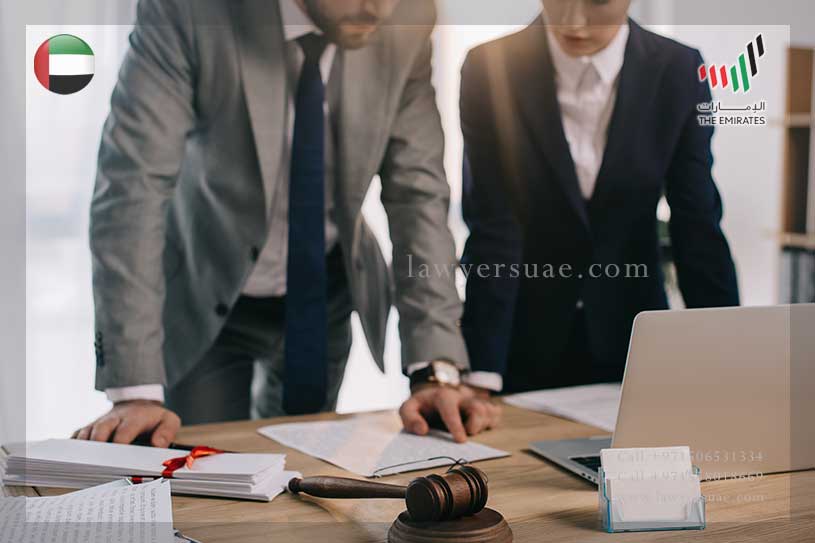If you have a business in Dubai, it’s essential to understand your legal rights and obligations to ensure compliance with local regulations. Here are some steps you can take to know your legal rights as a business owner in Dubai:
Ensuring Fairness in the Business World: Commercial Litigation and Dispute Resolution
If parties cannot reach a settlement through voluntary means or when there is a need for judicial intervention.

- Familiarize yourself with the legal framework: Gain a basic understanding of the legal system in Dubai, which is a part of the United Arab Emirates (UAE). The UAE legal system is a civil law system based on a combination of Islamic Sharia principles and influences from other legal systems.
- Consult a local legal expert: Engage the services of a reputable local lawyer or legal consultant who specializes in business and commercial law in Dubai. They can provide you with accurate and up-to-date information regarding your legal rights and obligations, as well as guidance on measures to prevent money laundering in your business operations.
- Understand company formation requirements: Depending on the type of business you operate, familiarize yourself with the specific requirements for setting up and operating a business in Dubai. This includes understanding the licensing and registration processes, permits, visas, and any industry-specific regulations.
- Review local laws and regulations: Study the relevant federal laws, local laws, and regulations that apply to your business activities in Dubai. These may include the UAE Commercial Companies Law, labor laws, intellectual property laws, and tax regulations, among others. Stay updated on any changes or updates to these laws.
- Join industry associations and networks: Engage with industry associations and business networks in Dubai. These organizations can provide valuable resources, networking opportunities, and information on legal matters specific to your industry.
- Attend workshops and seminars: Participate in workshops, seminars, or training sessions organized by government authorities or professional organizations. These events often cover legal aspects and can help you understand your rights and responsibilities as a business owner.
- Stay informed through official channels: Regularly check the official websites of relevant government authorities such as the Dubai Department of Economic Development (DED), Dubai Chamber of Commerce and Industry, and Dubai Courts for updates, circulars, and guidelines related to business and legal matters.
- Maintain proper records and contracts: Keep comprehensive records of your business transactions, contracts, agreements, and financial statements. Ensure that your contracts are properly drafted and reviewed by a legal expert to protect your rights and interests.
- Seek legal advice when needed: If you encounter any legal issues or disputes related to your business, consult your legal advisor promptly. They can provide guidance, negotiate on your behalf, or represent you in legal proceedings, if necessary.
Remember, the laws and regulations can vary depending on the nature of your business and its location within Dubai or the UAE. Therefore, it’s crucial to consult with a local legal professional to obtain personalized advice tailored to your specific circumstances.
Commercial Litigation and Dispute Resolution
Commercial Litigation and Dispute Resolution: Ensuring Fairness in the Business World In today’s complex business landscape, commercial litigation and dispute resolution have become indispensable tools for ensuring fairness and justice. With multinational corporations expanding their operations across borders and small businesses relying on intricate contracts to protect their interests, conflicts are inevitable.
This article delves into the multifaceted world of commercial litigation and dispute resolution, exploring its role in safeguarding the rights of individuals and organizations alike. At its core, commercial litigation refers to legal proceedings arising from disputes between businesses or individuals involved in commercial activities.
These can encompass a wide range of issues, including breach of contract, financial fraud, intellectual property violations, unfair competition practices, shareholder disputes, employment conflicts, consumer protection cases—the list goes on.
Such complexities necessitate a comprehensive understanding of the law alongside expert advice that only qualified lawyers well-versed in this particular sector can provide.
Dispute resolution techniques come into play when parties seek an alternative to traditional court trials to resolve their differences amicably while avoiding costly courtroom battles.
While some matters may still require formal litigation due to their nature or severity—a protracted process often resource-intensive—alternative forms such as negotiation, mediation or arbitration provide viable alternatives for achieving swift resolutions with less adversarial encounters.
However, overwhelming it may seem initially within this labyrinthine realm is undoubtedly beneficial not just for individual enterprises but also for fostering a trustworthy business environment where all stakeholders can thrive confidently.
Successfully navigating through these challenges via rigorous representation by competent legal professionals well-versed in both national laws/international conventions sets precedence crucial not solely for future jurisdictional endeavours but also for lending credibility imperative, especially during global economic crises comparable like those witnessed most recently—an unprecedented era serving as a testament to sturdy legal foundations premised upon skepticism regarding ambiguity yet validated frequently during circumstances marred otherwise havoc provoked entrepreneurial decision-making inevitably leading potentially avoidable aftermaths by responsible actors embracing rule-of-law shall incidentally set path for peril one inevitably routes toward.
This article will delve into the intricacies of commercial litigation, emphasizing its significance in the resolution that ensures fair outcomes and the preservation of stakeholders’ rights.
As we explore various dispute resolution mechanisms available to businesses across industries, we aim to shed light on the advantages and potential shortcomings associated with each method while offering insights into best practices adopted by successful organizations worldwide.
Whether you’re a seasoned entrepreneur or an aspiring business visionary venturing into unfamiliar territory, our comprehensive analysis of commercial litigation and dispute resolution will equip you with the knowledge needed to navigate this intricate landscape effectively. Stay tuned as we provide expert guidance and unravel the complexities tied to ensuring fairness in today’s ever-evolving world of commerce.
The Process of Commercial Litigation: Exploring the Legal Framework
Commercial litigation is a legal process that involves the resolution of disputes between individuals or organizations in the business world. It is an essential tool for ensuring fairness and justice in today’s complex business landscape. With businesses expanding globally and relying on intricate contracts, conflicts are bound to arise. Commercial litigation provides a legal framework for resolving these disputes and safeguarding the rights of all parties involved.
The process of commercial litigation begins with identifying the dispute and gathering evidence to support each party’s claims. This may involve document review, witness interviews, and expert opinions. Once all relevant information has been gathered, the parties engage in negotiations or alternative dispute resolution methods such as mediation or arbitration. If these methods fail to resolve the dispute, formal litigation may be pursued through court proceedings.
In conclusion, commercial litigation plays a crucial role in maintaining fairness in the business world by providing a legal framework for resolving disputes. It ensures that individuals and organizations can protect their rights when faced with conflicts arising from complex business transactions or contractual agreements. By understanding this process, businesses can navigate the complexities of commercial disputes effectively while upholding ethical standards and protecting their interests.
Strategies for Effective Dispute Resolution: Negotiation, Mediation, and Arbitration
Strategies for effective dispute resolution, such as negotiation, mediation, and arbitration, play a crucial role in ensuring fairness in the business world. Negotiation involves parties engaging in discussions to reach a mutually acceptable agreement. This strategy allows them to maintain control over the outcome while promoting open communication and collaboration.
Mediation is another valuable approach that involves an impartial third party assisting disputants in reaching a resolution. The mediator helps facilitate productive dialogue and identifies common ground among the conflicting parties. By providing guidance without imposing decisions, mediation encourages compromise and can often lead to more sustainable resolutions than those imposed through litigation.
Arbitration offers an alternative path by allowing parties to present their case before one or more neutral arbitrators who make binding decisions based on the evidence presented. This process provides a faster and less formal method of resolving disputes compared to traditional court litigation but still ensures fair treatment for all involved.
In today’s globalized business environment, where conflicts are inevitable due to diverse interests, commercial litigation and dispute resolution serve as vital mechanisms for upholding fairness between individuals and organizations alike. Various strategies like negotiation, mediation, and arbitration enable fair outcomes by encouraging discussion, and facilitating agreements through impartial mediators or arbitrators while avoiding costly courtroom battles.
Key Players in Commercial Litigation: Lawyers, Judges, and Expert Witnesses
Commercial litigation involves a range of key players who play crucial roles in ensuring justice. Lawyers are at the forefront of commercial litigation, representing clients and advocating for their rights. These legal professionals possess expert knowledge of relevant laws and regulations, allowing them to navigate complex disputes on behalf of individuals and organizations.
Judges also play a vital role in commercial litigation by presiding over cases and making impartial decisions. They interpret the law, assess evidence, and ensure that legal procedures are followed. With their expertise in applying legal principles to real-world business situations, judges contribute significantly to resolving conflicts fairly.
Expert witnesses provide specialized knowledge or opinions within specific fields related to the dispute. Their testimony helps clarify complex issues or provide technical insights that may be beyond the understanding of lawyers or judges alone. These experts bring credibility and expertise to proceedings, aiding in the resolution of commercial disputes by providing objective analysis based on their extensive experience.
Together, these key players work towards ensuring fairness and justice in commercial litigation settings by utilizing their respective skills and expertise. Lawyers tirelessly advocate for clients’ interests while judges ensure due process is upheld impartially. Expert witnesses contribute invaluable insight into complicated matters, ultimately facilitating fair resolutions for all parties involved.
International Commercial Disputes: Challenges and Solutions in a Globalized Economy
In a globalized economy, international commercial disputes present numerous challenges that can hinder business operations and create legal complexities. These disputes arise due to differences in laws, cultures, and business practices across jurisdictions, making the resolution a complex endeavour. Language barriers, different legal systems, and varying enforcement mechanisms further complicate the process.
To address these challenges, various solutions have emerged in the field of international commercial dispute resolution. Negotiation and mediation offer parties an opportunity to resolve their issues amicably without resorting to litigation. International arbitration provides a neutral forum where parties can obtain enforceable decisions from impartial experts. Additionally, specialized courts such as the International Chamber of Commerce (ICC) or The World Bank’s International Centre for Settlement of Investment Disputes (ICSID) offer streamlined procedures for resolving cross-border disputes.
Overall, navigating international commercial disputes requires expertise in both legal intricacies and cultural nuances. Effective dispute-resolution methods are crucial for ensuring fairness in the global business landscape while balancing the interests of all parties involved.

